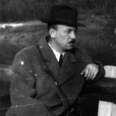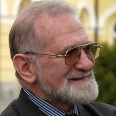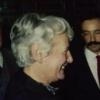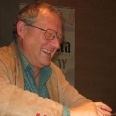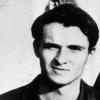Born Zdzisław Antoni Jeziorański, known under underground pseudonyms Jan Nowak, Kwiatkowski, Janek, Jan Zych. Born on the night 2nd and 3rd October 1914 in Berlin. Warsaw is frequently (and erroneously) mentioned as his birthplace: this is due to the alteration in documents made by Jeziorański himself during the German occupation in order not to draw the attention of the Nazi intelligence.
Initially a student at the Stefan Batory Gymnasium in Warsaw, the young Jeziorański was soon transferred to the Adam Mickiewicz Gymnasium. The latter school’s atmosphere made it possible for him to develop a deep interest in history as well as enter active participation in the Harcerstwo Movement (patriotic Scouting). Upon passing his final exams he went to Poznań to study economy at the university, from which he graduated in 1936. In June 1937, he completed the course at the Cadet School of Artillery Reserve Officers in Volodymyr-Volynskyi, and then was assigned to the Ready Reserve of the J. Sowiński 2nd Mounted Artillery Division. After that, he returned to the University of Poznań to become a PhD candidate. At the Department of Economics, he worked as assistant to professor Edward Taylor with whom he was later to share a friendship of many years.
With the outbreak of the war in 1939, Jeziorański was taken captive by the Germans in the Volhynian area; however, he and Józef Cyrankiewicz managed to escape the prisoner train while near Krakow. Having returned to Warsaw in 1940, he became involved in underground activities: he participated in the “Akcja N” event organized by Armia Krajowa (The Home Army) and intended to misinform the German army and administration. As the Courier to the Home Army Commander in Chief in London, he had a crucial role in communication which earned him the nickname of „The Warsaw Courier”. As a messenger, he went on five journeys from Warsaw to London and back, delivering top secret documents both ways. In 1944 he came to Poland to take part in the Warsaw Uprising. He took charge of preparing announcements for the guerilla radio Błyskawica („Lightning”). In the days of the Uprising he married Jadwiga Wolska, the courier known as „Greta”, whom he repeatedly referred to as the third love of his life, i.e., after God and the Country.
After the war, Jeziorański emigrated to live in London, Munich and then Washington. In the years 1948-51 he worked at the Polish Section of the BBC Radio. Starting from 1951 until 1976, he continuously supervised The Polish Section of the Radio Free Europe based in Munich, a radio station financed by the US government. It was via radio broadcast that he informed his compatriots of the situation on the other side of the iron curtain, thus disrupting the monopoly practices of the communist-controlled information sources.
Once retired, he cooperated with the Polish American Congress and worked as a consultant for the United States National Security Council as well as counselor for Eastern Europe to the State Department. He had an important role in Poland’s access to the NATO.
In 2002, Jeziorański eventually settled in Warsaw, where he died in 2005. He was buried at the Powązki Cemetery in Warsaw.
This project was conceived by the History Meeting House (Dom Spotkań z Historią) in Warsaw and realized by students of chosen Warsaw secondary schools: Adrianna Pasterska, Gabriela Kukla, Julia Benedyktowicz, Łukasz Żuchowski, Nikola Modzelewska, Paulina Bil. In the course of the project, the students prepared biograms and lists of reference works and films, and registered interviews with persons who used to know the selected figures of the Righteous. The project is co-financed by the Museum of Polish History in Warsaw within the programme "Patriotyzm Jutra" ("Patriotism of Tomorrow").








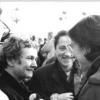
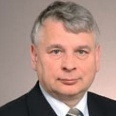





.jpg)

